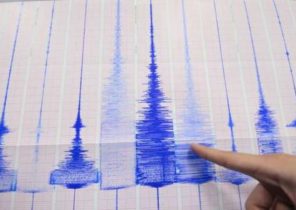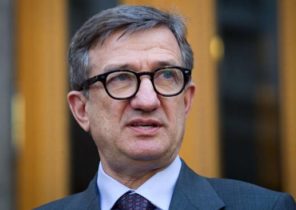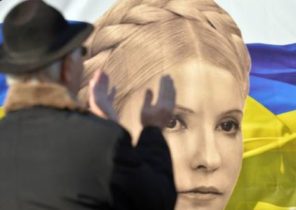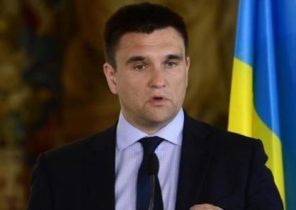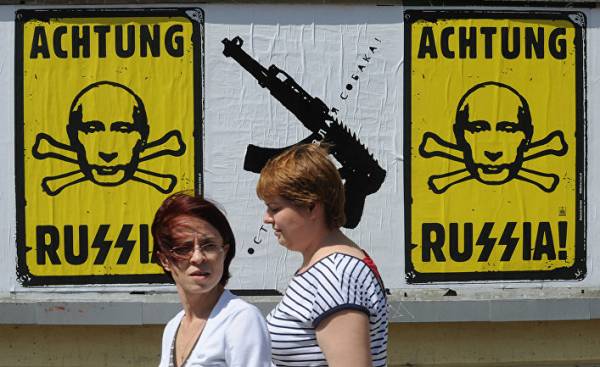
According to the results of an independent survey of “Levada-Centre”, Poland was included in the list of countries that the Russians consider to be their main enemy along with the US, Ukraine, Germany and Lithuania. An enemy called Poland 21% of respondents who are sympathetic to us less than 1% neighbors. The main friends of Moscow — Belarus, China and Kazakhstan.
Poland — no poles — Yes
Does the survey “Levada-Center” the real attitude of Russians to Poland? “In principle, the relationship with Poland, one in Russia, not interested, my compatriots don’t know anything about local elections or the Polish rate of “change for the better”” — says Russian political analyst Ivan Preobrazhensky, collaborating with the journal Nowa Europa Wschodnia.
In Russia know the last name of Kaczynski (Jarosław Kaczyński), it causes negative feelings, but is associated only with the period 2005-2007 when the Russian media actively discussed the performance of Fotyga Anna (Anna Fotyga), underlining how complex the relations between Moscow and Warsaw, says the expert. He adds that our country was visited by a very small percentage of Russians. In the 1970-ies there were, however, the fashion for the study of the Polish language, driven by the desire to read in Polish translations of Western literature, but this enthusiasm has long faded away. Regarding the detailed information the students receive only about how in 1612 poles captured the Kremlin. On this Foundation is built the relationship to Poland as a state (most often negative).
A short surge of interest in our country took place after the Smolensk catastrophe and the screening of the film “Katyn” by Andrzej Wajda on state television. Many Russians have said in public opinion polls about his sympathy and compassion for our people. However, when the war began in Ukraine, they remembered that Poland is in NATO and the EU, that is included in the Union with almost the archetypal enemy of the United States. The Russians still can’t forgive Poland for what she entered into an Alliance.
Meanwhile, the attitude of Poland as a state and the poles as a people is different. In personal conversations, when it comes about the country and its inhabitants, it appears that the majority of Russians treat us with sympathy. They try to make friends with the poles, believing that they understand “Russian soul” and seeing our people have many similarities.
Russia is a besieged fortress
You want to remake the world in their own way, look down on us, so do not interfere in our internal Affairs, persistently rebuke of the Kremlin’s policy of the Americans, the Russians put on the first place among the most hostile peoples. Dislikes are rooted in the cold war era, when a conspiracy against the Soviet Union was building with Washington, even Colorado potato beetle. In the end, the younger generation of Muscovites and Petersburgers imbibed this hatred with his mother’s milk. Now this feeling is reinforce the Russian mouthpieces propaganda channel Russia Today, which exposes the “true” intentions of the Americans in every news release. The effect is that 69% of Russians called the United States the main enemy of their homeland. 10 years ago, a negative attitude to the US only 35% of Russians.
The war in the Donbass and the middle East joined the list of enemies encroaching on “mother Russia”. Our neighbors starts to annoy not only US but also the European Union, including Poland, which sees the enemy every fourth Russian. Every year, our country appears in Russia, more and more detractors: in 2006, the dislike of it experienced only 7% of respondents “Levada-Center”. In the “black list” also includes Ukraine (enemy see it 50% of Russians), Germany, Lithuania and Latvia (24%).
But from the list of enemies of the disappeared in Turkey, which occupied the second place after joined the operation in Syria. The jump in sentiment was a sharp then: previously, Erdogan has always been a favorite of Moscow (negative attitude to Turkey on 1% of Russians). After the incident at the Turkish border by Russian aircraft, the number of respondents reporting a negative attitude to Ankara has increased to 29%. When Putin “pardoned” Turkey, an enemy named the country only 8% of Russians.
Is it possible to establish a relationship?
In recent years, Russia has damaged the EU’s image too. Previously, the Russians treated the EU neutral or positive. Now under the influence of the Kremlin propaganda their relationship to Europe has deteriorated.
The trend in society is the trend, as explained by the Transfiguration, may develop in two ways. “As history has shown, if the media staged a particularly active campaign on a particular issue, the mood in society during two years have changed radically. An example would be the conflict with Estonia. The situation of 1940-ies described how the liberation of its land from the Nazis, which protested against the “ungrateful” people. Under the influence of propaganda during the year the Estonians have turned into enemies of Russia. When psychological pressure eased, the mood quickly changed. Now a negative attitude to Estonia only 20% of Russians, the rest don’t care about it. It was the same with Georgia, which after the 2008 war turned to be their enemy, and now the attitude to this country again became quite normal,” explains the analyst.
If the promotion remains persistent and does not leave the subject, within a few years the mood in society has time to take root, the process is irreversible. “We came to the border, after which the EU can permanently gain a foothold in the enemy, as the United States, which will remain forever for the Russians a military adversary. So bad to Europe, primarily to Germany, were not in Russia since the 1970s years or even since the end of world war II,” notes the Transfiguration.
